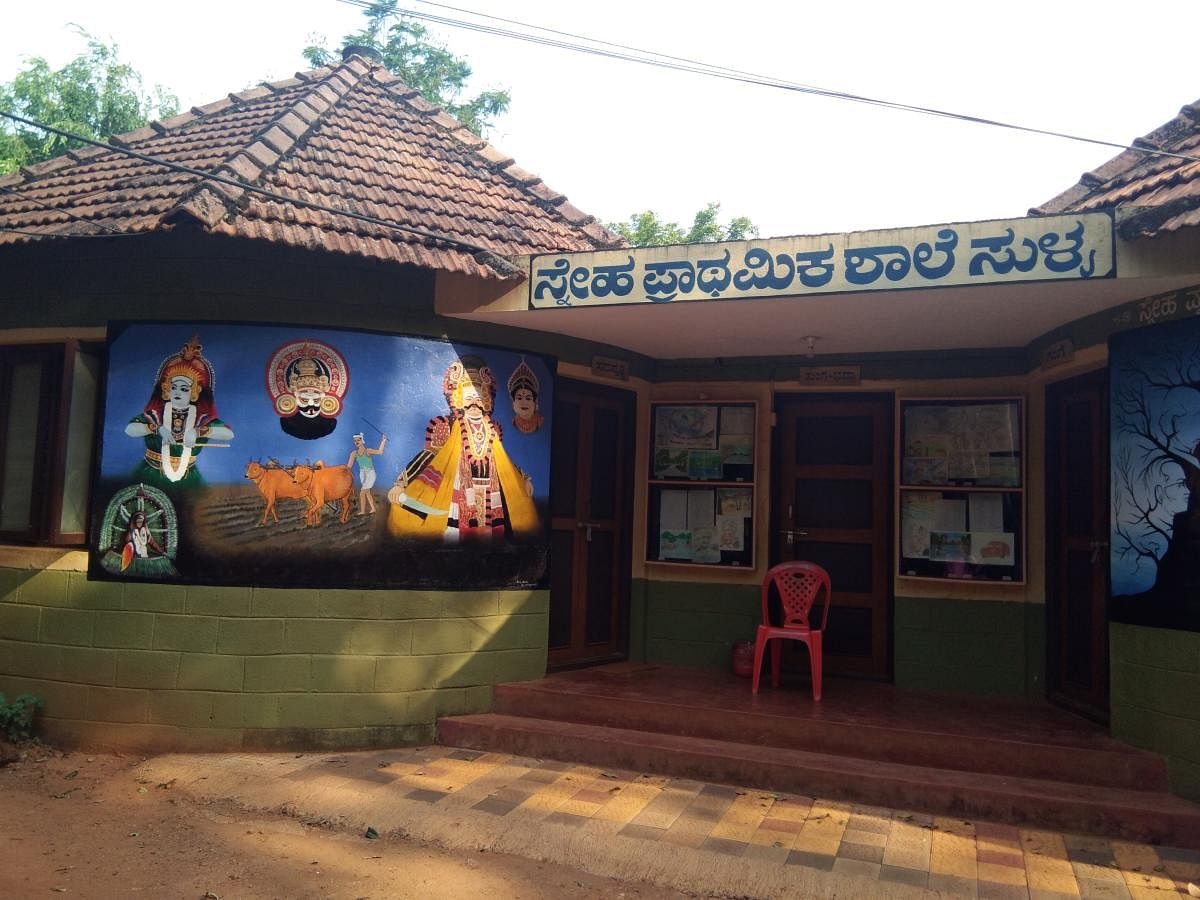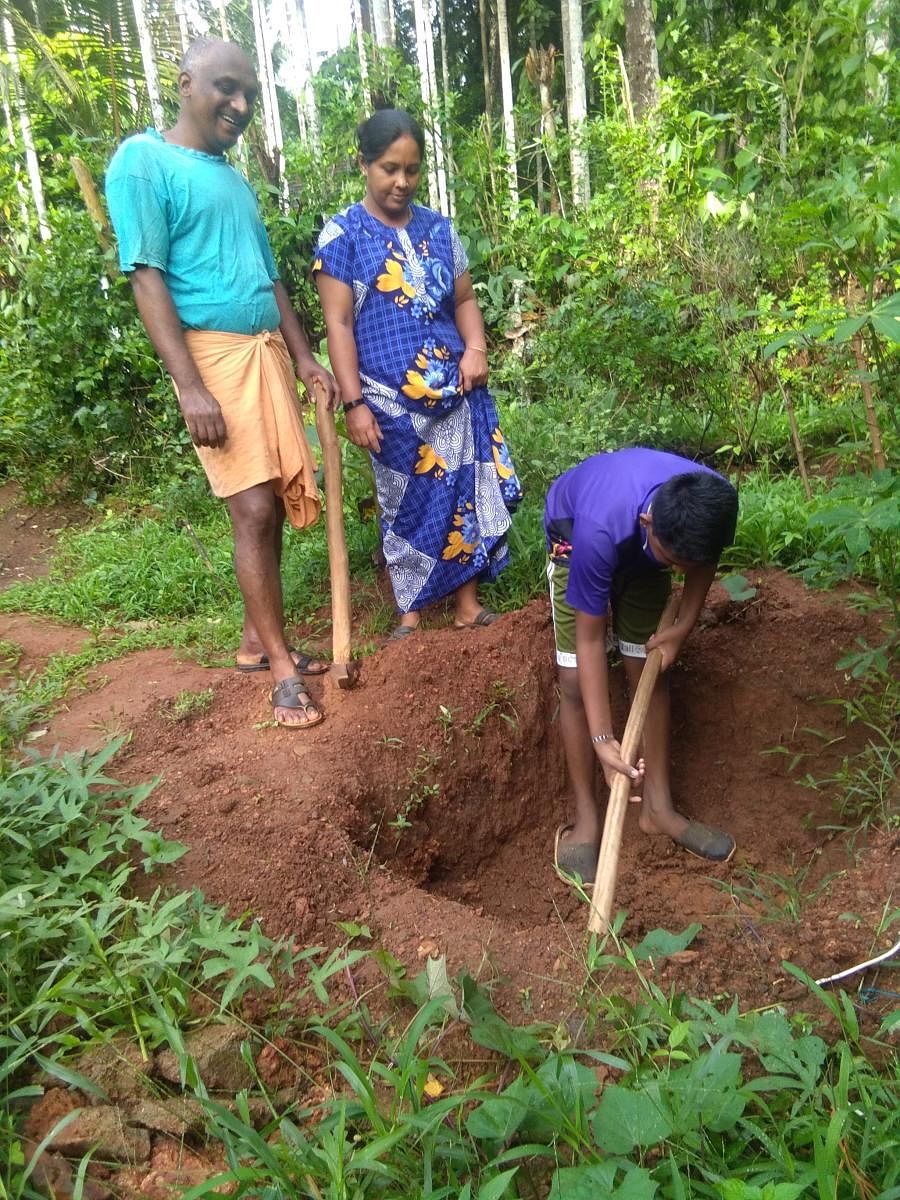

At a time when the state is in the midst of a severe drought, a school in Sullia in Dakshina Kannada district has come forward with a unique, replicable idea. Over 100 students of Sneha School in Sullia have dug percolation pits in their neighbourhoods, sending a strong message about the need to conserve water.
The school had asked the students studying in Classes 5 to 10 to dig at least one percolation pit near their home during the summer vacation. The students took up the new assignment with a lot of enthusiasm, and the result was quite pleasing.
It was Akshara, a Bengaluru-based psychologist and an alumnus of the school, who promoted this idea among the students.
“I had discussed this idea among the students of Class 8 two years ago, but their response was poor. Some parents too were indifferent, as they felt that such work would affect their children’s studies. Then the region had received sufficient rains too,” recalled Akshara.
However, he took it up this year as the district is experiencing a serious water shortage. He interacted with the same students who are now in Class 10. “Interestingly, they agreed to take up the new task with a lot of keenness, and there was no opposition from parents also,” he said.
Digging pits
The students were asked to dig 2x2x2 feet pits on their own without the help of their parents or labourers. They had to send the photo of the pit to the school by WhatsApp once it was dug. “We did not ask the students to dig bigger pits thinking that it would discourage them. All students, both boys and girls were part of the initiative. Though they dug small pits, the message they have taken home is a significant one,” said Chandrashekhara Damle, the founder of the school.
“We did not understand much when teachers told us about rainwater harvesting. But when we did it on our own, it was a great experience. I really want to continue such works in future too,” says Jayadeep, a student.
“The school had a single pond and used to face water scarcity in peak summer. We then dug up percolation trenches to harvest rainwater in the school premises. The results were positive, and we were able to dig another well too,” recalls Damle.
Thus, the school had a live example to explain its students about the significance of groundwater recharge. The school with 3.5 acres of green premises has 15 big trenches dug with the help of volunteers, school teachers and students.
“I am glad that my daughter is part of a project like this. We had apprehensions in the beginning that such works would divert her. Now I sense the significance of the work assigned by the school. It is raining here and my daughter is happy to see the percolation pit filled with water. Even our neighbours are motivated to follow the initiative,” says Jayanthi from Adkar near Sullia, a parent.
Since its inception, the 23-year-old school has encouraged its students to respect the natural surroundings and learn lessons from nature. “One acre of land is reserved for the natural forest, while another acre of land has medicinal plants. Students enjoy spending time amidst nature,” explains Damle. The school had bagged the Green School award conferred by the Karnataka State Pollution Control Board in 2015.
In order to draw the attention of students from other schools towards the new initiative of water conservation, Sneha School organised quiz and painting competitions recently.
Akshara is of the view that the project should be followed-up in the coming years. “Many primary school students want to take up this project in their neighbourhoods,” he says.
The local administration should consider taking up such activities in schools and colleges.